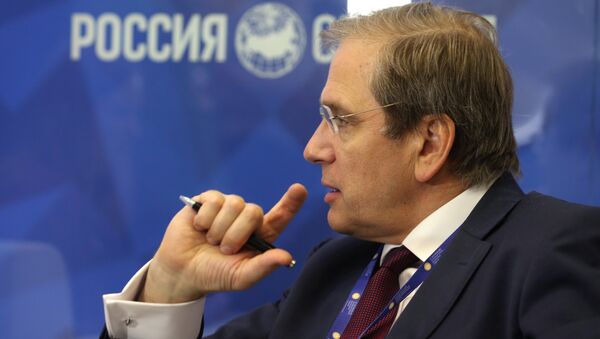ASTANA (Sputnik) — Speaking on the sidelines of the Eurasian Week international forum on Friday, Pankin said that EDB may seize the opportunity to take up those projects that cannot be run by foreign banks.
"The anti-Russian sanctions have two sides for us. There are factors that restrict work, and there are those that open up new opportunities and should be used," Pankin said on the sidelines of the Eurasian Week international forum, adding that EDB may seize the opportunity to take up those projects that cannot be run by foreign banks.
Eurasian Week 24-26 August, Expo-2017, Astana, Kazakhstan pic.twitter.com/HZgCtwdZUB
— Aristan Agency (@aristanagency) August 25, 2017
As an example, Pankin mentioned the reconstruction project of water facilities in the Russian northern city of Yakutsk, which was funded by the European Bank for Reconstruction and Development (EBRD). The bank can no longer provide loans for the project, so EDB will continue the next stage of the project, he explained.
Formally, EDB is not affected by the sanctions, but some potential partners have expressed concerns over Russian financial institutions, Pankin stressed.
The relations between Russia and the West deteriorated in 2014 over Moscow's alleged involvement in the Ukraine crisis and Crimea's reunification with Russia. The United States, European Union and some of their allies imposed several rounds of sanctions on Russia's energy, banking, defense and other sectors as well as on officials. Russia has repeatedly refuted US allegations and imposed a food embargo on the countries that targeted it with the sanctions.
EBRD's decision to suspend Russia's new projects from July 2014 was made amid the worsening of Moscow's relations with Washington and Brussels, and introduction of sanctions against Russia by the West over the former's alleged meddling in Ukraine's military conflict.


